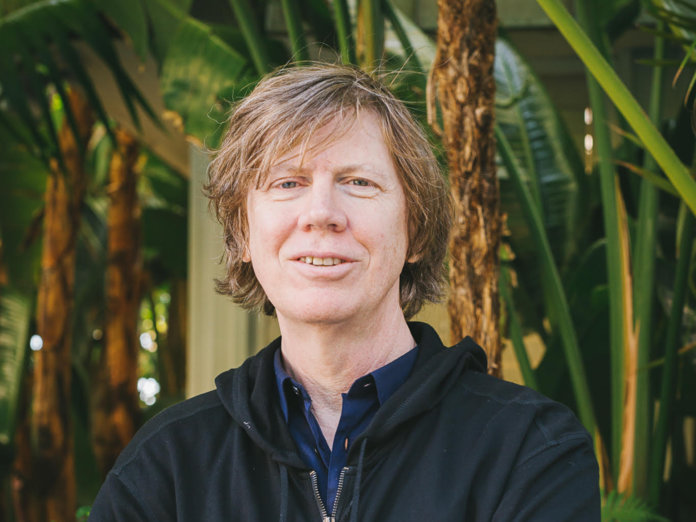The mission statement that accompanies this album might seem like an uncharacteristic hippie flex, but anyone who’s paid even slight attention to Thurston Moore’s output down the decades will recognise it. Here, then, is a newly urgent formulation of a long-standing belief in music’s ecstatic ...
The mission statement that accompanies this album might seem like an uncharacteristic hippie flex, but anyone who’s paid even slight attention to Thurston Moore’s output down the decades will recognise it. Here, then, is a newly urgent formulation of a long-standing belief in music’s ecstatic power (Sonic Youth, certainly, can be defined as much by their reach for transcendence as by their transgression). “This recording offers songs as flames of rainbow energy,” Moore writes, “where the power of love becomes our call. These are love songs in a time where creativity is our dignity, our demonstration against the forces of oppression.”
So it’s fighting talk from a lover, as these days demand, something reflected in the album’s ambiguous title: “by the fire” is shorthand for domestic contentment but a parenthetical “destroyed” gives it blazing apocalyptic overtones, too. The music emphasises this duality, moving between over-easy, oceanic guitar flows and furious, bass-weighted onslaughts, often in the same song, with retro trash pop and 12-string soloing their foils.
The love in question here is mostly “higher”, in the Albert Ayler and Alice Coltrane sense, rather than intimate, although the latter is obliquely folded into “Cantaloupe” and, more obviously, “They Believe In Love (When They Look At You)”, which seems to concern the adoration of a parent by their children and its contagious nature. “Cantaloupe” is one of just two songs with lyrics by Moore; the rest were written by London poet Radieux Radio, who also worked on 2014’s The Best Day and Rock n Roll Consciousness, from 2017. There’s an obvious shared interest in metaphysics, arcane philosophies, religion and higher consciousness/dream states, with references made to Rimbaud, Baudelaire and Dante. Across the record, the language is elegant and vividly allusive, unembarrassed by its “vibrations” and “essences of chi”. As to the band, it’s The Thurston Moore Group, first convened for The Best Day, with new member Jon Leidecker (of Negativland) on electronics and Steve Shelley depping for regular drummer Jem Doulton on one track.
Unsurprisingly, there are echoes of Moore’s past on By The Fire. Like anyone with almost 40 years of adventuring behind them, his music is now more about the deep, nuanced dig into established territory than striking out to plant a flag someplace new, plus exploring different contexts for his signature sound through continued collaboration. Moore’s workrate has hardly slumped and there’s enrichment from non-musical projects, too, like the radical publishing house co-founded with his partner Eva Prinz, Ecstatic Peace Library, of which the label Daydream Library Series is an offshoot.
These are “songs in the heat of the moment”, not in the sense of being hastily bashed out, but in that they were born of intensified existential concerns. Even if improv played some part in their genesis, they are nothing like jams. The epics – “Breath”, “Siren” and “Venus”, at 11, 12 and 14 minutes, respectively – are considered builds, with surge/retreat clusters combined in thrilling torrents whose pools of calm necessarily have their own tension. “Breath” especially is quite the rapids ride, moving from sweet lyricism through furious, Swans-style pummelling by what sounds like a dozen guitars then back, Deb Googe’s bass ruthlessly pumping until the song sounds fit to explode, which it does, into metallic shards before fading to oblivion.
At the other end of the scale sit irresistibly louche and loping opener “Hashish”, which throws back to Rather Ripped-era Sonic Youth and “They Believe In Love…”, whose math-rock disposition gives way to Can-style insistence. “Dreamers Work” is a solo, chiming electric piece with dreamy chord progressions and a hushed vocal, while alternative tunings lend an edge of American primitivism to “Calligraphy”, the other solo track. “Cantaloupe” is the “straight” number in the pack, with its agreeably heavy, ’70s-rock chug (rewind to “100%”) and matching DayGlo lyrics: “We’re pulsing blue blue to orange/Dripping fire music down yr back/Floating up thru yr skin/White gardenias in yr eyes.”
As a call to the Roman goddess of love, desire, beauty, sex, fertility… the whole nine yards, instrumental closer “Venus” is necessarily sublime and intense, since for Moore it heralds the possibilities of “a future truth of hope and light”. But it also verges on the terrifying, a mass shifting between majesty and dread, hi-hats hissing, like the offspring of Ben Frost, Hildur Guðnadóttir and Mayhem – not exactly a light, promise-filled step on which to exit. But she represents principle energy, so it’s maybe fitting that Venus calls the final shot. And if any invocation is to make itself heard today, it must roar.



